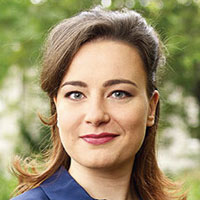ESCP Business School publishes first global carbon footprint calculation
ESCP has successfully completed its inaugural federal carbon footprint assessment for the 2022 academic year (September 2021 to July 2022), marking an important milestone in the effort to achieve a 55% reduction in carbon emissions by 2030.
ESCP-Wide Effort: a collaborative journey
The process to calculate ESCP’s federal carbon footprint began in 2022 under the leadership of Professor Joe Miemczyk and Sustainability Manager Laetitia Langlois with the extensive support of on-campus representatives and students across ESCP’s campuses in Paris, Berlin, London, Madrid and Turin.
International experience is a key part of the curriculum and student development at ESCP. With our unique multi-campus model in Europe, ESCP’s students are required to study in at least two cities during their time at the school. This experience provides intercultural skills students need in their future careers and remains a key aspect of ESCP’s identity. But it is also a key challenge. In considering ESCP’s carbon footprint, we also feel the responsibility to take into account the impact of student mobility.
Moreover, each campus operates within a unique framework of legal regulations, energy infrastructures, and logistical challenges. It was essential for each local carbon footprint to be independently compliant with relevant regulations while also aligning with global reporting standards. Achieving this required precise data collection. For example, in Madrid, regulations mandated calculating the carbon footprint based on the calendar year rather than the academic year. In London, pensions had to be included in Scope 3 emissions, a requirement that differs from other campuses where pensions are structured differently.
These specificities are one of the reasons why we decided to follow the GHG Protocol methodology as a rule of thumb and to work with local, specialised firms for each campus: Plan A (Berlin), SinCeO2 (Madrid), Climate Seed (Paris), Climate Essentials (London), and Tree-Fair (Turin).
This process was supported by our internal carbon experts, Sébastien El Rassi and Anaée Droubay, who ensured the data was consistent across all campuses and could form one global footprint for ESCP. In July 2024, our report was audited and verified by PWC, attesting to the reliability and accuracy of our findings.
.png)
Key Findings: ESCP’s carbon footprint calculation for 2022
The confirmed results of the carbon footprint report for ESCP for the year 2022 are the following:
Our total Carbon Footprint is 6,715 tonnes of CO2 equivalent (tCO2).
- Scope 1 Direct emissions: 1,517 tCO2 - gas emitted directly through combustion, fuel-burning processes, and fugitive emissions.
- Scope 2 Indirect energy emissions: 789 tCO2 - purchased electricity, heat, and steam.
- Scope 3 Other indirect emissions: 4,409 tCO2 - other indirect sources including purchased goods and services, business travel, commuting, and waste.
The carbon footprints of our campuses vary due to several key factors. For instance, the Berlin campus benefits from a green energy provider that exclusively uses renewable energy, which naturally lowers its carbon footprint. Our overall carbon footprint is primarily driven by three factors: student mobility, purchases, and energy consumption within buildings.
The higher carbon footprint attributed to the Paris campus is also due to the centralised reporting of all federal programmes, including the Bachelor, Master in Management, and MBA. Since the administration for these programmes is primarily based in Paris, it is more efficient to collect and report the associated data with the Paris campus. As a result, student mobility—which is a significant contributor to our overall footprint—is accounted for in Paris, though students participate in these programmes across multiple campuses.
.png)
Carbon Footprint Reduction Strategy: taking action
The next step is to implement our reduction strategy, with solid measures already in place, as seen on our newly opened Turin campus. With sustainability at the forefront of its design, the new campus includes solar panels, LED lighting, advanced thermal performance, and electric-vehicle charging stations, to significantly reduce both energy consumption and emissions.
We are also committed to minimising the environmental impact of student travel, a key component of our international curriculum. For compulsory short-term mobility programmes, such as the Designing Europe Seminar in Brussels, we have implemented low-carbon transportation solutions.
For students travelling from campuses where sustainable options like trains are viable (e.g. Paris and London), ESCP will manage and cover the cost of these eco-friendly travel arrangements.
Today, ESCP's focus is on expanding its reach through education and programmes, rather than establishing new campuses or increasing its physical presence in other countries. This approach allows us to connect with more students, partners, and collaborators worldwide without increasing activities that contribute to our carbon footprint.
Keep an eye out for new actions!
Campuses

